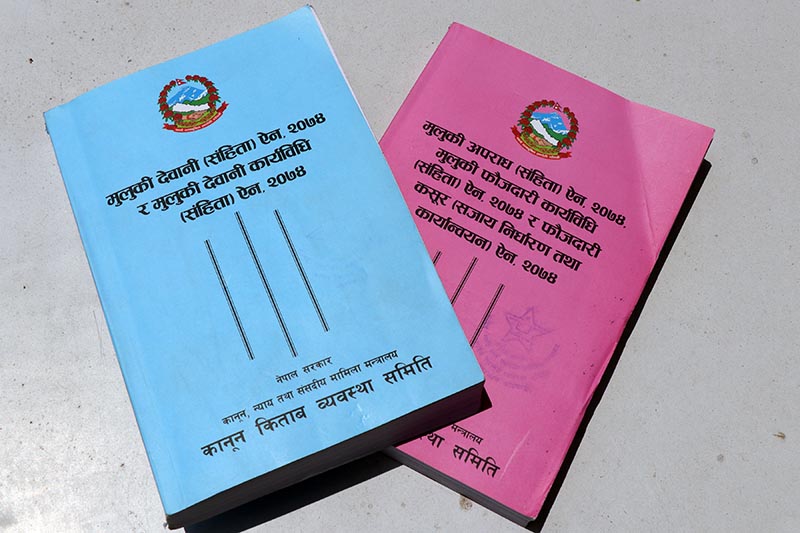‘Anti-press provisions’ in new laws draw mixed reactions
Kathmandu, August 17
Stakeholders have given mixed reactions to the alleged anti-press provisions in the Criminal Code Act and Civil Code Act, which came into force today.
Speaking at an interaction organised by Federation of Nepali Journalists and Press Council Nepal here today, FNJ president Govinda Acharya said over 200 provisions in the codes were likely to be exercised to curtail press freedom.
“Though several provisions in these codes are positive, almost all sections from 21 to 306 will pose a threat to free press and freedom of expression in one way or the other,” he said. Acharya said the FNJ would pressure the government to amend or rectify the provisions, which are in contravention of the constitution and international laws. PCN acting chair Kishor Shrestha claimed that the government had enacted new laws to control malpractices in society and urged journalists not to take it otherwise.
Former FNJ president Suresh Acharya took a dig at the government over the anti-press provisions in the new laws and said, “Time has come for journalists to wait till Gaijatra to publish or broadcast news and views on issues of public concern. The laws made to curtail press freedom cannot be acceptable and should be amended,” he said.
Former PCN chair Borna Bahadur Karki said, “The provisions against press freedom can be amended accordingly, but it is not appropriate to interpret the laws wrongly,” he suggested. Senior Superintendent of Police Thakur Gyawali at the Central Investigation Bureau of Nepal Police said, “Since the new laws have come into force upon their publication in the Nepal Gazette, all should abide by the provisions mentioned therein.”
Superintendent of Police Narendra Upreti at Metropolitan Police Crime Division said police would enforce the new laws. “Whether or not the laws are against press freedom will come to light in the course of their implementation,” he said.
Senior vice-chair of Nepal Press Union Deepak Acharya said the news laws were unacceptable as they intended to curtail press freedom. He also threatened to launch protest against the ‘anti-press provisions’. Former president of Revolutionary Journalists’ Organisation Prabhat Chalaune urged the government to scrap all the provisions, which curtail press freedom and freedom of expression. Photojournalist Bikash Karki said the Civil Code Act tightened the noose on the media directly or indirectly. Chairperson of Cartoonists’ Club Avin Shrestha said, “It is very unfortunate that we have been forced to raise the issue of press freedom in a democracy.”






